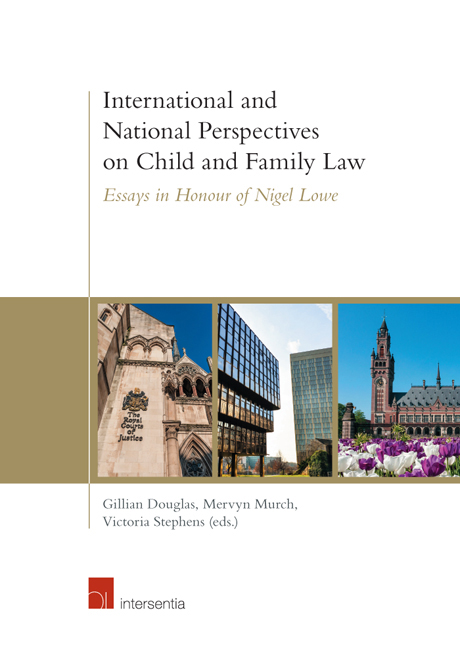Book contents
- Frontmatter
- Foreword
- Acknowledgements
- Contents
- List of Cases
- List of Contributors
- Introduction: Nigel Vaughan Lowe: An Appreciation
- Part I Family and Child Law in England and Wales
- The Supreme Court and Family Law
- The Development of Parent–Child Relationships in Family Law: The Cascade of Change
- Commitment-Based Parenting: Parental Responsibility in English Law
- Rights Children Should Not Have
- Empirical Research on Adoption of Children from Care
- Pathways to Adoption: From Long and Winding Road to Obstacle Course?
- Child Abuse and Public Inquiry Methodologies
- Lowe and the Inherent Jurisdiction
- Wards of Court
- Part II International Family Law
- Part III The Future for Family and Child Law
Lowe and the Inherent Jurisdiction
from Part I - Family and Child Law in England and Wales
Published online by Cambridge University Press: 12 October 2018
- Frontmatter
- Foreword
- Acknowledgements
- Contents
- List of Cases
- List of Contributors
- Introduction: Nigel Vaughan Lowe: An Appreciation
- Part I Family and Child Law in England and Wales
- The Supreme Court and Family Law
- The Development of Parent–Child Relationships in Family Law: The Cascade of Change
- Commitment-Based Parenting: Parental Responsibility in English Law
- Rights Children Should Not Have
- Empirical Research on Adoption of Children from Care
- Pathways to Adoption: From Long and Winding Road to Obstacle Course?
- Child Abuse and Public Inquiry Methodologies
- Lowe and the Inherent Jurisdiction
- Wards of Court
- Part II International Family Law
- Part III The Future for Family and Child Law
Summary
It is a privilege to have the opportunity to contribute to a festschrift for Professor Nigel Lowe. He is one of four people who have been a major influence in the development of my professional life.
I first met Nigel in 1976 in Somerset House in what was then the Principal Registry of the Family Division. I was representing the London Borough of Camden on one of the early local authority wardship applications before Senior Registrar Norman Turner in a very pleasant room overlooking the Thames.
Nigel was engaged in some initial research on wardship. As I recall we asked for the Registrar's permission (or leave as it would then have been called) to discuss the case outside court. We really did take the protective nature of the jurisdiction seriously in those days.
That chance meeting led to a writing (and teaching and research and even tennis) partnership over 40 years. It led more immediately to the co-writing and publication of the first edition of Wards of Court in 1979. I say co-writing but in reality it was an opportunity for Nigel to coach a junior partner on legal research and academic writing. I like to think that I contributed with a little knowledge about the workings of local authorities and by emphasising the need for such works to be accessible to practitioners, legal and non-legal. It was one of life's odd coincidences that the opportunity to prepare the first edition occurred when I broke a leg. As a result I spent many research hours cloistered in the law library at Bristol University.
The history and scope of wardship was of course at that time relatively unexplored. Mr Justice Cross (as he then was) wrote briefly about the subject in 1967, noting that the only book of reference had last been published in 1926. We know that the origins of wardship date from feudal times. The case law provides a fascinating insight in the social history of our treatment of children over the centuries.
Oddly enough I had represented a party in wardship proceedings in the Chancery Division during my articles in 1970, the year before such proceedings were transferred to the Family Division.
- Type
- Chapter
- Information
- International and National Perspectives on Child and Family LawEssays in Honour of Nigel Lowe, pp. 111 - 114Publisher: IntersentiaPrint publication year: 2018



